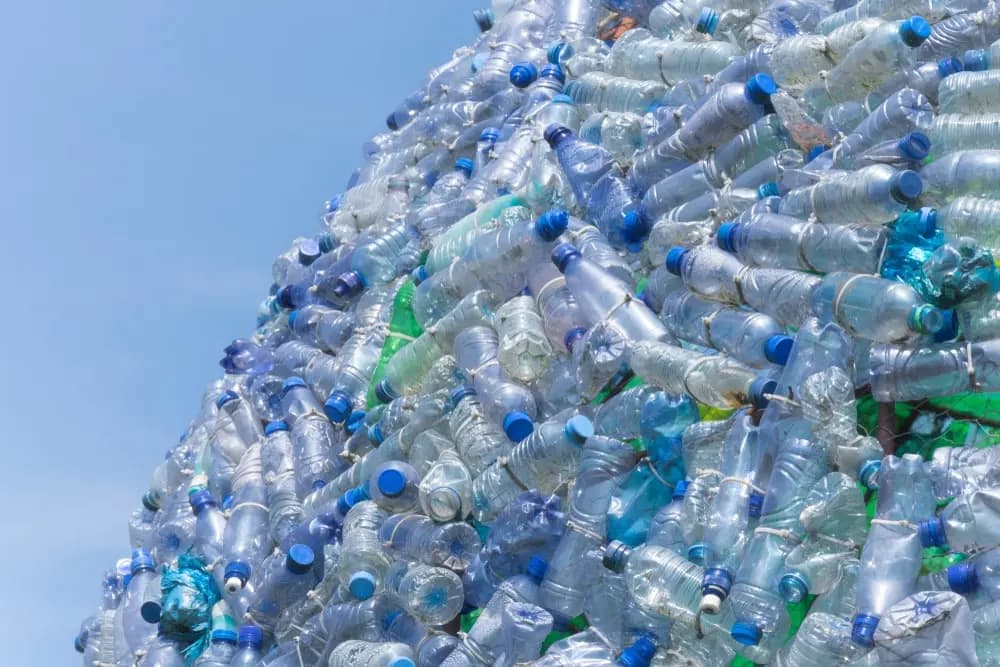SOURCE : GREENBIZ
Nature is drowning in plastic waste. Every minute, the equivalent of one dump truck full of plastic enters our oceans alone, with dire consequences for people and wildlife. In response, many political and business leaders have committed to ending the flow of plastic into nature by 2030. But critical gaps in national-level data from governments and companies continue to impede this ambitious effort. Simply put, we can’t manage what we can’t measure.
If we want to keep plastic out of our oceans and rivers, we need to reduce or redesign unnecessary plastics, double the global recycling rate from 14 percent to 28 percent and shift to recycled or sustainably sourced bio-based plastic for plastic items that we can’t live without. But a strategy is only as good as the data behind it, and much of the data we have to work with is incomplete. Additionally, recent changes in recycling markets around the world, including shifts in domestic waste management and new restrictions on the import of plastic waste, have rendered much of the current data outdated.
China provides an illustrative example of these recent shifts. China processed nearly half of the world’s recyclable plastic waste over the last quarter century, but became overwhelmed by the deluge of contaminated plastic. In 2018, the Chinese government responded by enacting the “National Sword” policy, which effectively reduced the country’s plastic imports by 99 percent.
This action sent shock waves through the global plastic trade, as nations struggled to find new markets and diverted recyclable materials to landfills, incinerators and the environment. It also catalyzed import restrictions from nations such as India, Malaysia, Thailand and Vietnam.
These disruptions are an understandable rebuke of a global system that has long treated the Global South as a dumping ground for waste. Meanwhile, many countries are also rolling out improvements in domestic recycling. For example, over 40 cities in China have piloted improved waste sorting programs since early 2019.
Even before these systemic changes, we faced data gaps on plastic use and management. It is more important than ever to confront the lack of consistent and comprehensive reporting on plastic, and commit to improve data collection on a number of essential issues.
First, a dearth of reliable data on informal recycling is one factor limiting progress. In Global South countries roughly 15 million people earn income by recovering waste and selling it for recycling. Improved data on informal recycling could be a game changer for some markets. In India, for example, urban waste recyclers have the potential to decrease landfilled waste by 70 percent. Understanding the informal sector’s contribution to the recycling process can inform more impactful interventions, and help ensure collaborations are inclusive and responsive to their needs.
Second, there is a growing demand for compostable packaging, but a lack of data on industrial and home composting for plastic makes it difficult to determine where or how we should focus on scaling up this technology. To date, we are unable to estimate the global composting rate for plastic.
Third, municipal solid waste (MSW) management reporting doesn’t use standardized definitions, resulting in an incomplete understanding of regional priorities. For instance, some countries and municipalities report construction and demolition waste as MSW. This can represent as much as 40 percent of the total waste stream, dramatically increasing MSW’s volume compared to places where it is not included. Systematic public reporting on waste management data is mostly limited to high-income and some middle-income countries, which means the biggest data gaps persist in the places where this information is most critically needed.
Both national governments and companies have crucial roles to play in filling these data gaps.
Governments should institute annual national reporting of solid waste statistics, including amounts collected, recycled, sent to landfill, incinerated and composted. Governments also should ratify a new international legally binding agreement to curb and track national plastic pollution and ensure the responsible global trade of waste. Each nation simultaneously should make actionable domestic commitments to reduce plastic waste and eliminate leakage into nature. This begins with initiating better data collection procedures — but also taking steps to ensure waste management systems are circular and retain a product’s maximum natural resource value.
Companies have a role to play as well. They should take steps to collect and disclose more comprehensive data on plastic use in their own supply chains. And they should prioritize validating their results in locations where they sell a significant portion of their volumes, where there are high rates of landfilling or mismanagement of plastics, and/or where there is limited data on waste management.
Plastic has brought significant benefits to human civilization, but plastic waste is a threat to nature, public health and economic prosperity. We have a broad framework to eliminate plastic pollution but, as always, science must be our guide. Addressing these data gaps will enable us to collectively make significant, measurable progress on this critical issue.



